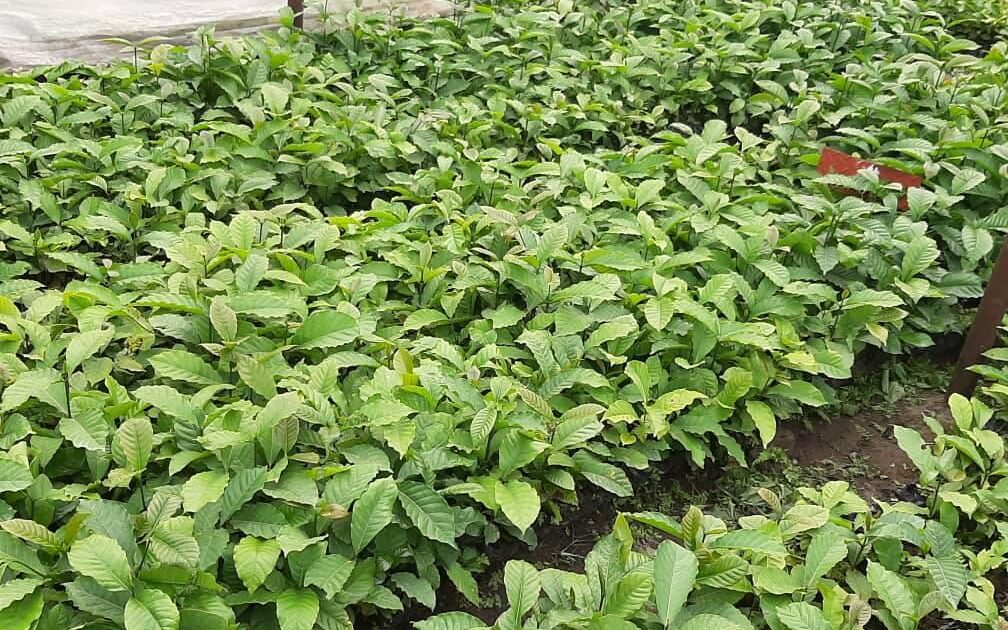Clonal coffee plantlets at Taddewo William Senyonyi’s nursery bed
A few weeks ago, Rogers Bukenya, a farmer asked me the following question: Would it be wise to plant KR 7 yet there is KR 10? I am just seeking clarity. Thanks
Answer
In answering him, I provided more information about Clonal coffee/cuttings for the benefit of both existing and potential coffee farmers.
Below is the answer to Bukenya’s question which may be helpful to you.
Firstly, Uganda Coffee Development Authority (UCDA) through the National Coffee Research Institute (NaCORI), Kituza-Mukono developed Coffee Wilt Disease-resistant (CWDr) varieties commonly referred to as KR after the devastating Coffee Wilt Disease (CWD) wiped out millions of trees in 1990s and early 2000s.
It is estimated that CWD has destroyed about 56% of Robusta trees since 1993, causing a big constraint to Robusta Coffee production.
This is why Government is encouraging farmers to plant KR varieties that are not only resistant to CWD, but are also high yielding and mature faster than elite seedlings.
It is also crucial to note that Coffee Wilt Disease is still prevalent.
Farmers must also distinguish between KR varieties and ordinary/ old clones/lines that were developed first but aren’t Wilt resistant.
Back to the question, scientists at NaCORI started by developing KR1 before improving it to get other varieties in ascending order (KR2-10). However, KR8-10 are the latest varieties to be developed.
This means that they are being multiplied by nursery operators. There could be a few nursery operators with KR8-10, but generally KR8-10 plantlets aren’t readily available.
Nursery operators multiply planting materials through a mother garden.
A mother plant is a Coffee plant from which a nursery
operator harvests the clones, which are then made
to grow into new plants that are genetically identical
to the mother plant.
Farmers should also know that it is not good to plant only one or two varieties of KR because each variety has its unique characteristics and benefits.
Therefore, it is better to plant all the varieties. The minimum recommended number of varieties to plant are five. In simple terms, it’s okay to plant other varieties like KR1-7 even when there’s KR8-10. Noteworthy, according to scientists, a new variety for example KR10 is an improvement on KR 9 and therefore is supposed to perform better than earlier varieties. However, practically, it isn’t always the case. You will find some varieties developed earlier performing better than new varieties depending on conditions and agronomic practices applied.
In summary, you are advised to plant all available KR varieties because each has its unique characteristics and benefits.
Taddewo William Senyonyi is a Coffee Nursery Operator (0775170346/staddewo@gmail.com)







Thank so much for the information. Its really helpful
Thank you for the teaching we need more up dates on good and current varieties of coffee as it is the way forward for Uganda.
Good insights. I’m based in Dokolo and intend to plant an acre this March